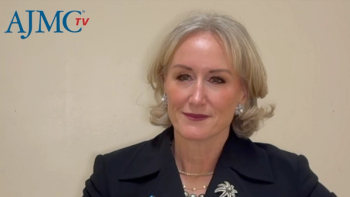
Helping Patients Overcome Health Disparities as a Patient Advocate
An expert reviews the role of the patient advocate in ensuring that health disparities in metastatic breast cancer are overcome.
Episodes in this series

Sonya Negley, IOM, CSMA: There are a lot of things that have been tried in terms of health disparities over the years. A lot of organizations have tried to reach into the community to overcome health disparities. There weren’t any studies. There was a lot of anecdotal information, where we would get calls from [patients] who would say, ‘I wasn’t offered this medication, but I talked to so-and-so at a conference, and they said that was their first-line treatment.” Of course, we need to make sure that, whatever the standard of care is for metastatic breast cancer, everybody has the option to do that. There is no hiding that treatments for metastatic breast cancer and many other diseases are expensive. And it shouldn’t matter [whether] you live in a suburb, in a rural area, [or whether] your skin is White, Brown, or Black—that should not be the deciding factor of what options are presented to a patient, ever. It should not matter [whether] you’re 10 minutes or 4 hours from the center of excellence. It should not matter.
If patients are not seeking information on their own about their disease and treatment options, it’s hard to know exactly what that standard of care is. And if patients are presented with that situation, where [maybe they’re newly diagnosed and] they haven’t studied information about their disease, or their subtype, or what the standard of care is, the best thing to do is ask their oncologist: Can you tell me [whether] this is the standard of care for everyone with my subtype? What are future options if I progress on this treatment? Ask question after question, especially if you’re still reeling from the diagnosis. Make sure you have a person who can write down information, especially the question and the answer to every single thing you talk with your doctor [about]. Prepare questions in advance of your appointment. Those are so important, because it’s going to help you decide [whether] this is the right care team for [you] long term or [whether you’re] going to have to make arrangements to go to a different care team. There are so many resources that are available for patient advocates, [so] it’s not hard to find some specific answers to questions out there, and then repeat those questions to your physician.
There are some campaigns going on right now that are specific to newly diagnosed patients. The biggest thing you can do is join a support group. [Also] make sure [to] track what is happening in your journey, whether that’s journaling, sharing information with your loved ones, or inside a peer support group…. That’s one of the big things [that patients] can do on their own. Now, I hate to say that it’s the patient’s responsibility to help overcome health disparities, because it’s really not. There really shouldn’t be a disparity based on any of those things, but the truth in the day and time that we’re living in is that, unfortunately, there still are health disparities and [patients] are still treated differently. So, the biggest thing a person can do regardless of whether they’re experiencing any health disparities is to make sure that they’re taking responsibility for their own health care.
Secondly is your health care team. You are going to be in treatment forever, so if it’s not a good fit, don’t stick around. Find another care team that can support you and that you feel comfortable with. If you’re in a hospital setting or a cancer center setting, [it’s always good to] to let people know there that you’re not feeling comfortable, and that you would appreciate either a referral or recommendation. Or [ask whether] there are any programs in place that could help your care team better understand you as an individual patient. Whether that’s because of race, where you live, or [your] socioeconomic status. It doesn’t matter. You should feel comfortable in every way and every setting, and that’s what your health care team is there to do.
We always encourage patients to reach out to either local or national organizations that can help support them in their journey and help make some recommendations for some really good quality health care teams. Sometimes you have to drive a little way to get there, and sometimes they’re local to you. Those are the biggest recommendations that we make. Make sure you are connected to other people, that you understand your diagnosis, and that you’re comfortable with your care team. That’s the best way to overcome health disparities. Many programs can help navigate you through your breast cancer journey, and we really encourage you to seek out programs that do that.
Transcript edited for clarity.
Newsletter
Stay ahead of policy, cost, and value—subscribe to AJMC for expert insights at the intersection of clinical care and health economics.










